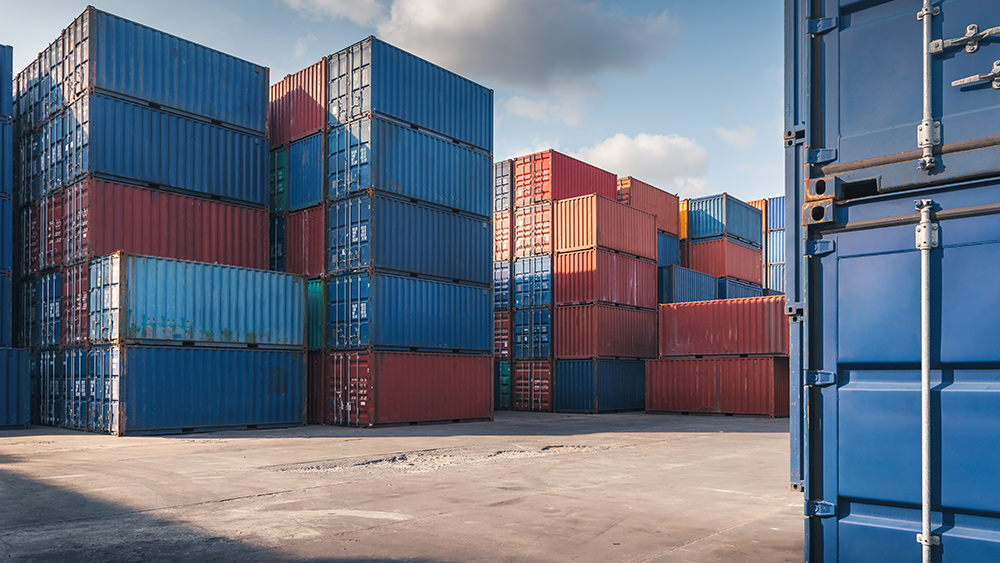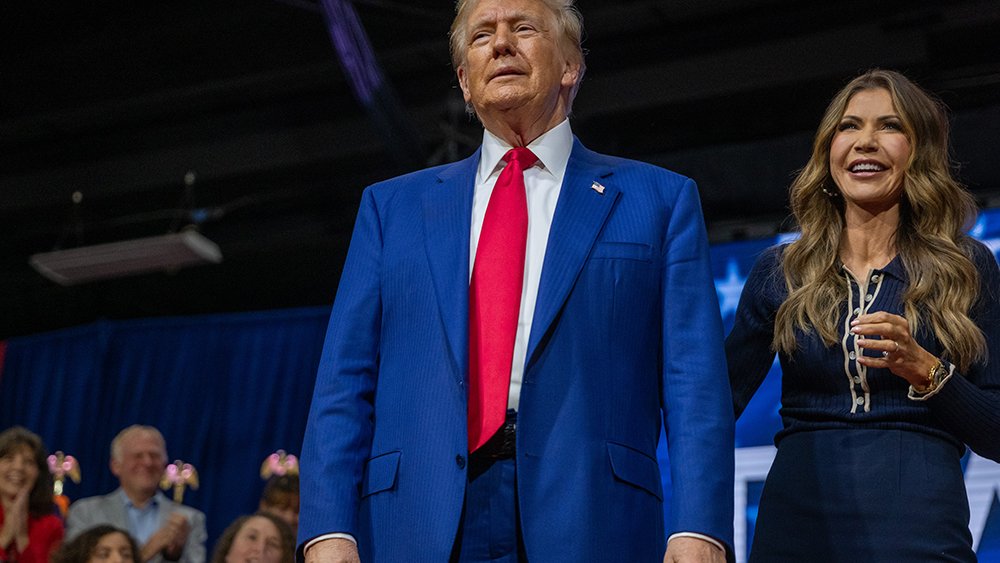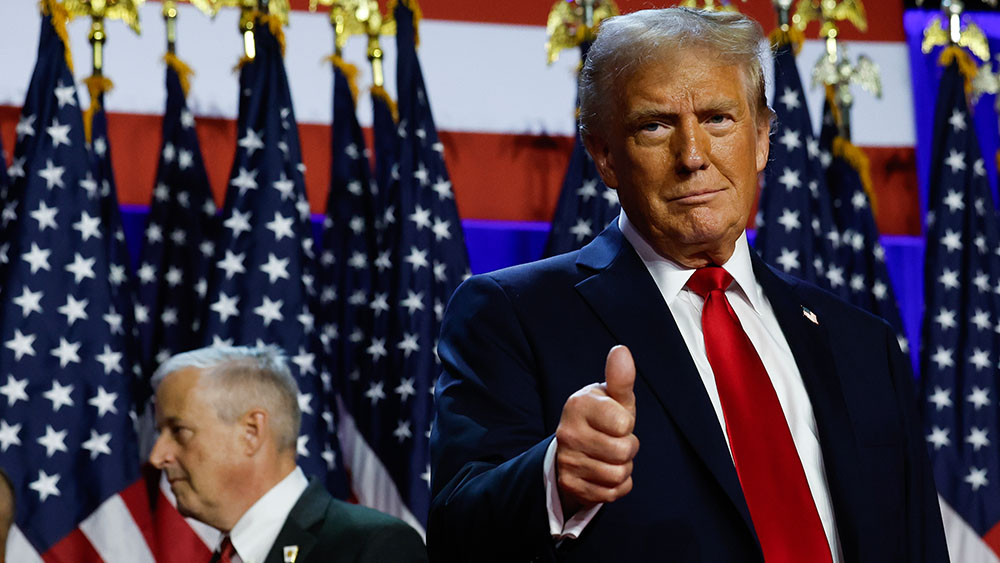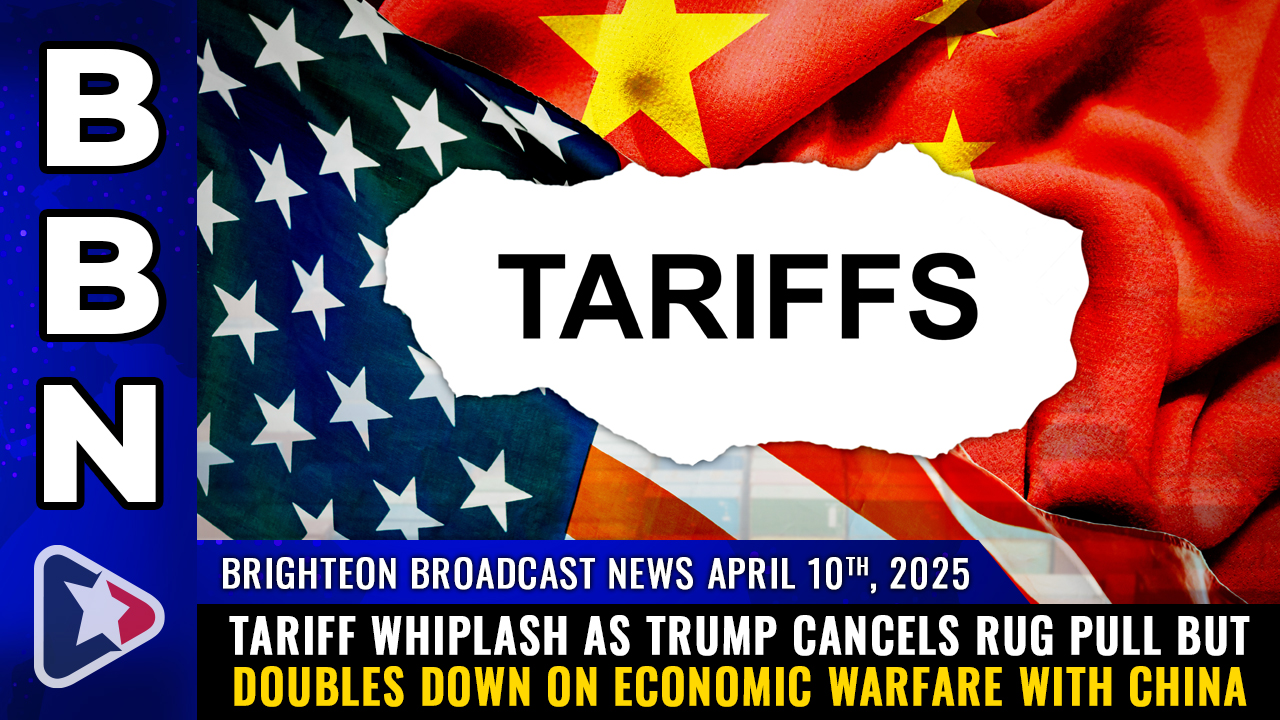German car brand Audi halts U.S. vehicle deliveries amid Trump tariffs
04/09/2025 / By Ramon Tomey

- Following the imposition of a 25 percent tariff on imported cars effective April 2, German car maker Audi halted deliveries of new vehicles to the United States. Dealers were instructed to withhold arrivals post-April 2, though the current U.S. inventory of 37,000 cars provides a two-month supply.
- The move reflects worsening Washington-Brussels trade friction, with U.S. President Donald Trump framing tariffs as “reciprocal” protection for U.S. manufacturers. Auto parts will also face tariffs starting in May, further straining import-reliant automakers like Audi.
- Germany’s automotive industry condemned the tariffs as harmful to free trade. Analysts predict German brands will suffer most, while European Commission President Ursula von der Leyen called the measures “a major blow” to the global economy.
- Audi may shift production to Volkswagen’s Tennessee plant or raise consumer prices, risking market competitiveness. Jaguar Land Rover also paused U.S. exports for a month to reassess pricing, though both brands have temporary inventory buffers.
- The dispute highlights vulnerabilities in global supply chains and rising protectionism, echoing past steel/aluminum tariff conflicts. Trump’s policies have strained transatlantic relations, leaving automakers scrambling for long-term solutions amid economic uncertainty.
German automaker Audi has suspended deliveries of its vehicles to the U.S. following the new 25 percent tariff on imported cars imposed by U.S. President Donald Trump.
The suspension was confirmed by the weekly German car newspaper Automobilwoche on Monday, April 7. It came days after the tariffs took effect on Wednesday, April 2. Audi dealers in the U.S. have been instructed to withhold vehicles arriving after April 2, though the company still has roughly 37,000 cars in U.S. inventory – enough to last about two months.
The move by Audi, owned by the Volkswagen Group, raises concerns about broader disruptions in the auto industry. It also underscores the growing trade friction between Washington and Brussels. Rising production costs and plant closures in Germany’s manufacturing sector have already exacerbated the pressure caused by the levy.
Meanwhile, Trump framed the tariffs as “reciprocal” measures, ostensibly to protect U.S. manufacturers. However, car imports won’t be the only ones. Starting in May, 150 categories of auto parts will also be subject to tariffs. (Related: Trump imposes 25% tariffs on auto imports.)
The import-reliant Audi – which sources its vehicles from Germany and other countries like Mexico, Hungary and Slovakia – now faces significant financial strain as a result. Its parent firm has also warned U.S. dealers of impending cost increases, with shipments from Mexico and U.S. ports already paused pending further pricing clarity.
Audi scrambles for solutions as tariffs threaten sales
The German Association of the Automotive Industry condemned the tariffs as “a disastrous signal for free, rules-based trade.” Analysts meanwhile warned that German manufacturers like Volkswagen and Mercedes-Benz could be hit hardest.
Ursula von der Leyen, president of the European Commission, criticized the U.S. measures as “a major blow to the world economy.” She reiterated Brussels’ willingness to negotiate a zero-tariff agreement for industrial goods.
Unfortunately, the proposal has been met with little enthusiasm from the White House – leaving Audi and other car manufacturers to scramble for solution. Analysts suggest Audi could leverage Volkswagen’s Tennessee plant or prepare for higher consumer prices – options that may alienate cost-conscious buyers in a competitive market.
Audi isn’t alone in this predicament, however. Jaguar Land Rover, another major importer of British-made vehicles to the U.S., announced a one-month pause on exports as it reevaluates pricing strategies. Like Audi, the company owned by India’s Tata Group has a temporary buffer with existing U.S. inventory – but long-term strategies remain uncertain.
The dispute underscores a deepening rift in transatlantic trade relations, recalling past tensions over steel and aluminum tariffs. While Trump has defended the measures as economically beneficial, their immediate fallout highlights the vulnerability of global supply chains – and the high stakes for automakers navigating an era of increasing protectionism.
Watch this video about Audi’s production facilities in the German city of Ingolstadt.
This video is from the HTcurt – Truth Seeker channel on Brighteon.com.
More related stories:
Trump’s 25% auto tariffs: A bold move to strengthen U.S. manufacturing despite short-term challenges.
President Trump announces new tariff rates to compete globally and rebuild American economy.
Trump’s 25% auto tariffs shake industry, but Tesla stands strong.
Sources include:
Submit a correction >>
Tagged Under:
Audi, auto parts, big government, car deliveries, cars, Collapse, Donald Trump, economics, economy, Jaguar Land Rover, products, reciprocal measures, supply chain, tariffs, transportation, US manufacturing
This article may contain statements that reflect the opinion of the author
RECENT NEWS & ARTICLES
COPYRIGHT © 2017 RISK NEWS





















